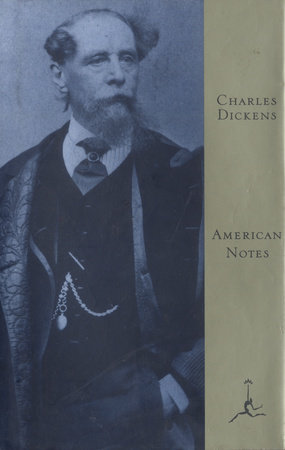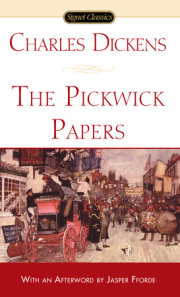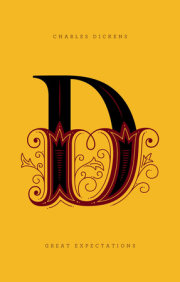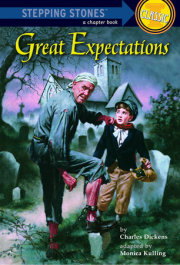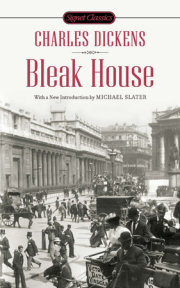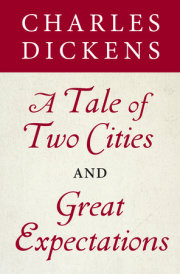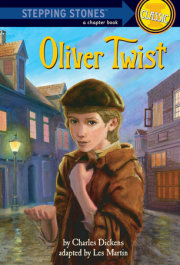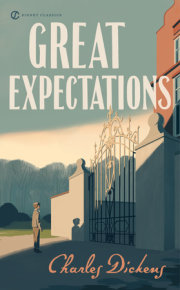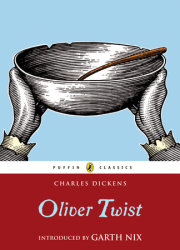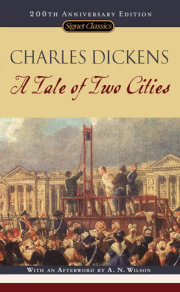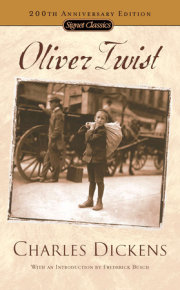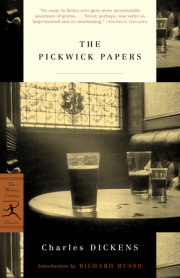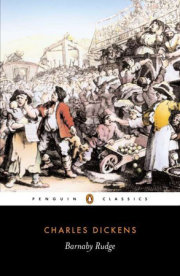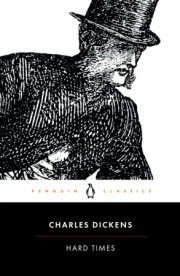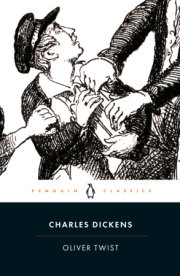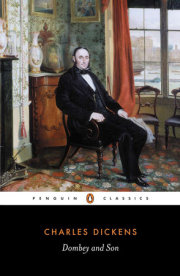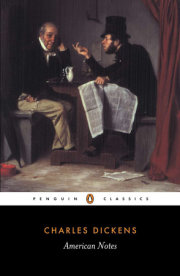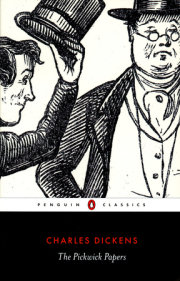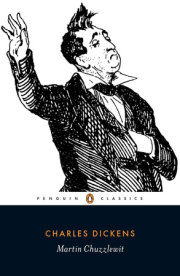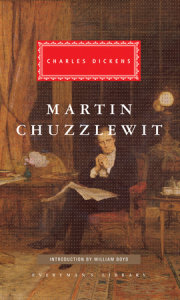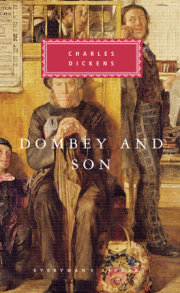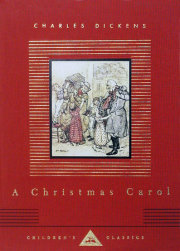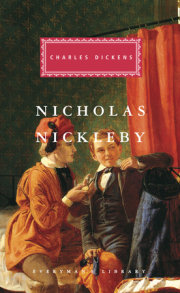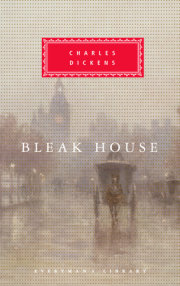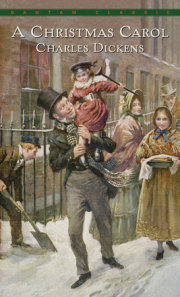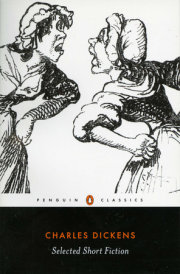I shall never forget the one-fourth serious and three-fourths comical astonishment, with which, on the morning of the third of January eighteen-hundred-and-forty-two, I opened the door of, and put my head into, a 'state-room' on board the 'Britannia' steam-packet, twelve hundred tons burthen per register, bound for Halifax and Boston, and carrying Her Majesty's mails.
That this state-room had been specially engaged for 'Charles Dickens, Esquire, and Lady,' was rendered sufficiently clear even to my scared intellect by a very small manuscript, announcing the fact, which was pinned on a very flat quilt, covering a very thin mattress, spread like a surgical plaster on a most inaccessible shelf. But that this was the state-room concerning which Charles Dickens, Esquire, and Lady, had held daily and nightly conferences for at least four months preceding: that this could by any possibility be that small snug chamber of the imagination, which Charles Dickens, Esquire, with the spirit of prophecy strong upon him, had always foretold would contain at least one little sofa, and which his lady, with a modest yet most magnificent sense of its limited dimensions, had from the first opined would not hold more than two enormous portmanteaus in some odd corner out of sight (portmanteaus which could now no more be got in at the door, not to say stowed away, than a giraffe could be persuaded or forced into a flower-pot): that this utterly impracticable, thoroughly hopeless, and profoundly preposterous box, had the remotest reference to, or connexion with, those chaste and pretty, not to say gorgeous little bowers, sketched by a masterly hand, in the highly varnished lithographic plan hanging up in the agent's counting-house in the city of London; that this room of state, in short, could be anything but a pleasant fiction and cheerful jest of the captain's, invented and put in practice for the better relish and enjoyment of the real state-room presently to be disclosed:--these were truths which I really could not, for the moment, bring my mind at all to bear upon or comprehend. And I sat down upon a kind of horsehair slab, or perch, of which there were two within; and looked, without any expression of countenance whatever, at some friends who had come on board with us, and who were crushing their faces into all manner of shapes by endeavouring to squeeze them through the small doorway.
We had experienced a pretty smart shock before coming below, which, but that we were the most sanguine people living, might have prepared us for the worst. The imaginative artist to whom I have already made allusion, has depicted in the same great work, a chamber of almost interminable perspective, furnished, as Mr. Robins would say, in a style of more than Eastern splendour, and filled (but not inconveniently so) with groups of ladies and gentlemen, in the very highest state of enjoyment and vivacity. Before descending into the bowels of the ship, we had passed from the deck into a long narrow apartment, not unlike a gigantic hearse with windows in the sides; having at the upper end a melancholy stove, at which three or four chilly stewards were warming their hands; while on either side, extending down its whole dreary length, was a long, long table, over each of which a rack, fixed to the low roof, and stuck full of drinking-glasses and cruet-stands, hinted dismally at rolling seas and heavy weather. I had not at that time seen the ideal presentment of this chamber which has since gratified me so much, but I observed that one of our friends who had made the arrangements for our voyage, turned pale on entering, retreated on the friend behind him, smote his forehead involuntarily, and said below his breath, 'Impossible! it cannot be!' or words to that effect. He recovered himself however by a great effort, and after a preparatory cough or two, cried, with a ghastly smile which is still before me, looking at the same time round the walls, 'Ha! the breakfast-room, steward--?' We all foresaw what the answer must be: we knew the agony he suffered. He had often spoken of the saloon; had taken in and lived upon the pictorial idea; had usually given us to understand, at home, that to form a just conception of it, it would be necessary to multiply the size and furniture of an ordinary drawing-room by seven, and then fall short of the reality. When the man in reply avowed the truth; the blunt, remorseless, naked truth; 'This is the saloon, Sir'--he actually reeled beneath the blow.
In persons who were so soon to part, and interpose between their else daily communication the formidable barrier of many thousand miles of stormy space, and who were for that reason anxious to cast no other cloud, not even the passing shadow of a moment's disappointment or discomfiture, upon the short interval of happy companionship that yet remained to them--in persons so situated, the natural transition from these first surprises was obviously into peals of hearty laughter, and I can report that I, for one, being still seated upon the slab or perch before mentioned, roared outright until the vessel rang again. Thus, in less than two minutes after coming upon it for the first time, we all by common consent agreed that this state-room was the pleasantest and most facetious and capital contrivance possible; and that to have had it one inch larger, would have been quite a disagreeable and deplorable state of things. And with this; and with showing how,--by very nearly closing the door, and twining in and out like serpents, and by counting the little washing slab as standing-room,--we could manage to insinuate four people into it, all at one time; and entreating each other to observe how very airy it was (in dock), and how there was a beautiful port-hole which could be kept open all day (weather permitting), and how there was quite a large bull's-eye just over the looking-glass which would render shaving a perfectly easy and delightful process (when the ship didn't roll too much); we arrived, at last, at the unanimous conclusion that it was rather spacious than otherwise: though I do verily believe that, deducting the two berths, one above the other, than which nothing smaller for sleeping in was ever made except coffins, it was no bigger than one of those hackney cabriolets which have the door behind, and shoot their fares out, like sacks of coals, upon the pavement.
Having settled this point to the perfect satisfaction of all parties, concerned and unconcerned, we sat down round the fire in the ladies' cabin--just to try the effect. It was rather dark, certainly; but somebody said, 'of course it would be light, at sea,' a proposition to which we all assented; echoing 'of course, of course;' though it would be exceedingly difficult to say why we thought so. I remember, too, when we had discovered and exhausted another topic of consolation in the circumstance of this ladies' cabin, adjoining our stateroom, and the consequently immense feasibility of sitting there at all times and seasons, and had fallen into a momentary silence, leaning our faces on our hands and looking at the fire, one of our party said, with the solemn air of a man who had made a discovery, 'What a relish mulled claret will have down here!' which appeared to strike us all most forcibly; as though there were something spicy and high-flavoured in cabins, which essentially improved that composition, and rendered it quite incapable of perfection anywhere else.
There was a stewardess, too, actively engaged in producing clean sheets and table-cloths from the very entrails of the sofas, and from unexpected lockers, of such artful mechanism, that it made one's head ache to see them opened one after another, and rendered it quite a distracting circumstance to follow her proceedings, and to find that every nook and corner and individual piece of furniture was something else besides what it pretended to be, and was a mere trap and deception and place of secret stowage, whose ostensible purpose was its least useful one.
God bless that stewardess for her piously fraudulent account of January voyages! God bless her for her clear recollection of the companion passage of last year, when nobody was ill, and everybody dancing from morning to night, and it was 'a run' of twelve days, and a piece of the purest frolic, and delight, and jollity! All happiness be with her for her bright face and her pleasant Scotch tongue, which had sounds of old Home in it for my fellow-traveller; and for her predictions of fair winds and fine weather (all wrong, or I shouldn't be half so fond of her); and for the ten thousand small fragments of genuine womanly tact, by which, without piecing them elaborately together, and patching them up into shape and form and case and pointed application, she nevertheless did plainly show that all young mothers on one side of the Atlantic were near and close at hand to their little children left upon the other; and that what seemed to the uninitiated a serious journey, was, to those who were in the secret, a mere frolic, to be sung about and whistled at! Light be her heart, and gay her merry eyes, for years!
The state-room had grown pretty fast; but by this time it had expanded into something quite bulky, and almost boasted a bay-window to view the sea from. So we went upon deck again in high spirits; and there, everything was in such a state of bustle and active preparation, that the blood quickened its pace, and whirled through one's veins on that clear frosty morning with involuntary mirthfulness. For every gallant ship was riding slowly up and down, and every little boat was splashing noisily in the water; and knots of people stood upon the wharf, gazing with a kind of 'dread delight' on the far-famed fast American steamer; and one party of men were 'taking in the milk,' or, in other words, getting the cow on board; and another were filling the icehouses to the very throat with fresh provisions; with butchers'-meat and garden-stuff, pale sucking-pigs, calves' heads in scores, beef, veal, and pork, and poultry out of all proportion; and others were coiling ropes and busy with oakum yarns; and others were lowering heavy packages into the hold; and the purser's head was barely visible as it loomed in a state of exquisite perplexity from the midst of a vast pile of passengers' luggage; and there seemed to be nothing going on anywhere, or uppermost in the mind of anybody, but preparations for this mighty voyage. This, with the bright cold sun, the bracing air, the crisply-curling water, the thin white crust of morning ice upon the decks which crackled with a sharp and cheerful sound beneath the lightest tread, was irresistible. And when, again upon the shore, we turned and saw from the vessel's mast her name signalled in flags of joyous colours, and fluttering by their side the beautiful American banner with its stars and stripes,--the long three thousand miles and more, and, longer still, the six whole months of absence, so dwindled and faded, that the ship had gone out and come home again, and it was broad spring already in the Coburg Dock at Liverpool.
I have not inquired among my medical acquaintance, whether Turtle, and cold Punch, with Hock, Champagne, and Claret, and all the slight et cetera usually included in an unlimited order for a good dinner--specially when it is left to the liberal construction of my faultless friend, Mr. Radley, of the Adelphi Hotel--are peculiarly calculated to suffer a sea-change; or whether a plain mutton-chop, and a glass or two of sherry, would be less likely of conversion into foreign and disconcerting material. My own opinion is, that whether one is discreet or indiscreet in these particulars, on the eve of a sea-voyage, is a matter of little consequence; and that, to use a common phrase, 'it comes to very much the same thing in the end.' Be this as it may, I know that the dinner of that day was undeniably perfect; that it comprehended all these items, and a great many more; and that we all did ample justice to it. And I know too, that, bating a certain tacit avoidance of any allusion to to-morrow; such as may be supposed to prevail between delicate-minded turnkeys, and a sensitive prisoner who is to be hanged next morning; we got on very well, and, all things considered, were merry enough.
When the morning--the morning--came, and we met at breakfast, it was curious to see how eager we all were to prevent a moment's pause in the conversation, and how astoundingly gay everybody was: the forced spirits of each member of the little party having as much likeness to his natural mirth, as hot-house peas at five guineas the quart, resemble in flavour the growth of the dews, and air, and rain of Heaven. But as one o'clock, the hour for going aboard, drew near, this volubility dwindled away by little and little, despite the most persevering efforts to the contrary, until at last, the matter being now quite desperate, we threw off all disguise; openly speculated upon where we should be this time to-morrow, this time next day, and so forth; and entrusted a vast number of messages to those who intended returning to town that night, which were to be delivered at home and elsewhere without fail, within the very shortest possible space of time after the arrival of the railway train at Euston Square. And commissions and remembrances do so crowd upon one at such a time, that we were still busied with this employment when we found ourselves fused, as it were, into a dense conglomeration of passengers and passengers' friends and passengers' luggage, all jumbled together on the deck of a small steamboat, and panting and snorting off to the packet, which had worked out of dock yesterday afternoon and was now lying at her moorings in the river.
And there she is! all eyes are turned to where she lies, dimly discernible through the gathering fog of the early winter afternoon; every finger is pointed in the same direction; and murmurs of interest and admiration--as 'How beautiful she looks!' 'How trim she is!'--are heard on every side. Even the lazy gentleman with his hat on one side and his hands in his pockets, who has dispensed so much consolation by inquiring with a yawn of another gentleman whether he is 'going across'--as if it were a ferry--even he condescends to look that way, and nod his head, as who should say, 'No mistake about that:' and not even the sage Lord Burleigh in his nod, included half so much as this lazy gentleman of might who has made the passage (as everybody on board has found out already; it's impossible to say how) thirteen times without a single accident! There is another passenger very much wrapped-up, who has been frowned down by the rest, and morally trampled upon and crushed, for presuming to inquire with a timid interest how long it is since the poor President went down. He is standing close to the lazy gentleman, and says with a faint smile that he believes She is a very strong Ship; to which the lazy gentleman, looking first in his questioner's eye and then very hard in the wind's, answers unexpectedly and ominously, that She need be. Upon this the lazy gentleman instantly falls very low in the popular estimation, and the passengers, with looks of defiance, whisper to each other that he is an ass, a
Copyright © 2000 by Charles Dickens. All rights reserved. No part of this excerpt may be reproduced or reprinted without permission in writing from the publisher.

